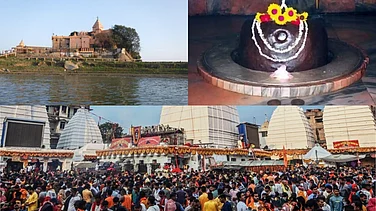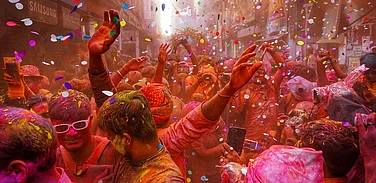Diwali is the festival of lights. Families come together, light diyas, share sweets, and enjoy the spirit of the season. But one thing about Diwali has been troubling firecrackers for many years.
Crackers are loud, smoky, and harmful. They pollute the air, cause health problems, and disturb people and animals. Because of this, the government and courts have introduced strict rules, especially in cities like Delhi. As Diwali 2025 arrives, the debate around crackers is once again in focus.
Why Firecrackers Are a Problem
For a few seconds of fun, crackers fill the air with smoke and dust. These particles stay in the atmosphere for a long time. Some are so tiny that they go deep into our lungs.
Delhi and other parts of North India already face severe pollution in winter. Stubble burning, vehicle smoke, and cold weather make the air worse. When firecrackers are added to this mix, the result is choking smog. The air turns gray, visibility drops, and people struggle to breathe.
Experts say that just one night of bursting crackers can push pollution levels several times higher than safe limits. This is why authorities keep reminding people to avoid them.
Health Risks of Firecrackers
The smoke from crackers is a toxic cocktail of heavy metals and chemicals that enters our bodies and causes serious harm. Every year during Diwali, hospitals report a surge in patients with respiratory and cardiovascular emergencies. According to data from previous years, Air Quality Index (AQI) levels in cities like Delhi have skyrocketed from 'Poor' (201-300) to 'Severe' (401-500+) within hours of firecracker bursting, with PM2.5 levels exceeding safe limits by over 10 times.
Here are the specific health issues linked to these pollutants:
Severe Respiratory Distress: Chemicals like Sulphur Dioxide and Nitrogen Dioxide trigger inflammation in the lungs, leading to severe asthma attacks, bronchitis, and COPD exacerbations.
Cardiovascular Strain: The fine particulate matter (PM2.5) can enter the bloodstream, increasing the risk of high blood pressure, heart attacks, and strokes, particularly in the elderly and those with pre-existing conditions.
Neurological Effects: Heavy metals like lead and magnesium in crackers can have neurotoxic effects, especially on the developing brains of children.
Hearing Damage: Noise levels from firecrackers can exceed 140 decibels, well above the 75-decibel limit for safe hearing, causing temporary or even permanent hearing loss.
Eye and Skin Injuries: Direct contact with sparks and chemicals causes severe burns, eye irritation, and allergic skin reactions.
Government and Court Action
The growing health crisis forced the government and courts to act. In 2017, the Supreme Court asked if a cracker ban would help Delhi’s air. By 2018, the Court banned traditional crackers and allowed only “green crackers.”
Green crackers were supposed to release fewer pollutants. But soon it became clear that it was hard to tell green crackers from normal ones. Traders mixed old stock with new ones, and people were confused.
From 2020 onwards, the Delhi government imposed a complete ban during winter. The rule covered not just bursting crackers, but also their production, storage, and sale.
In 2024, ahead of winter, the Delhi government again announced a blanket ban on all crackers till January 1, 2025. The ban was made under the Air (Prevention and Control of Pollution) Act, 1981. This means no crackers green or otherwise are allowed in the city.
What Exactly Are 'Green Crackers'?
To mitigate pollution, the Supreme Court mandated the use of "green crackers," developed by the Council of Scientific and Industrial Research (CSIR-NEERI). But what makes them different?
Green crackers are not pollution-free, but they are designed to be less harmful. They reduce particulate matter emissions by at least 30% and do not contain banned, highly toxic chemicals like barium nitrate, arsenic, and lead. Instead, they use alternative chemical formulations that produce less smoke and noise.
To ensure authenticity, approved green crackers come with a QR code on the box. Consumers can scan this code using the CSIR NEERI green QR code app to verify the product's legitimacy and manufacturing details. However, even these are included in the blanket bans issued by several state governments, including Delhi.
Penalties for Violating the Firecracker Ban
State governments are enforcing the firecracker ban strictly. In cities like Delhi, the rules are implemented under the Air (Prevention and Control of Pollution) Act and relevant sections of the Indian Penal Code (IPC).
Anyone found bursting firecrackers can face fines and even imprisonment. Under Section 188 of the IPC (Disobedience to order duly promulgated by public servant), a violation can lead to imprisonment for up to six months and a fine. For those involved in the illegal sale and storage, penalties under the Explosives Act can be much more severe. Special enforcement squads are often deployed to monitor and act on violations reported by citizens.
The Problem of Implementation
Even with rules in place, many people still burst crackers. Activists like Bhavreen Kandhari point out that the ban is often announced late, in September, when people have already bought crackers. Some even store them months in advance.
Enforcement is another weak link. Illegal sales continue in many markets. Online platforms sometimes make it easy to order crackers. Without strong checks, laws remain on paper while the air continues to suffer.
Campaigns to Create Awareness
Apart from laws, awareness drives also try to change habits. One such effort is the “Say No to Crackers” campaign. It focuses on schools, housing societies, and markets. Students are encouraged to spread the message at home.
These campaigns have made some difference. Pollution spikes during Diwali are slowly coming down in cities, though they are still very high. The change will only be lasting if more people understand the risks and act responsibly.
What You Can Do This Diwali
Every festival is about joy and togetherness, not noise and smoke. Here are a few simple steps to celebrate responsibly this year:
Skip crackers completely - focus on lights, music, and family time.
Teach children - explain why avoiding crackers is good for their health and the planet.
Choose eco-friendly decor - use diyas, flowers, and paper lanterns instead of plastic lights.
Celebrate with neighbors - plan a community feast, cultural program, or games.
Spread the message - remind friends and family that crackers harm everyone.
Diwali Should Be About Light, Not Smoke
Diwali is about celebrating the victory of good over evil. It is about spreading light, love, and happiness. Firecrackers may give a moment of thrill, but they leave behind days of toxic air and health problems.
This Diwali 2025, the message is simple: say no to crackers and yes to clean celebrations. By choosing light over smoke, we protect our health, respect our neighbors, and safeguard the environment for the next generation.























